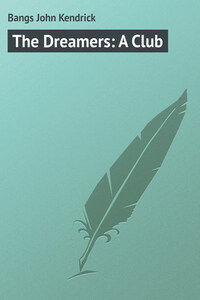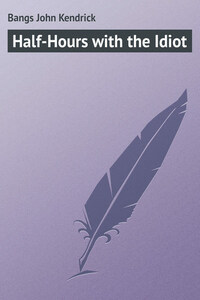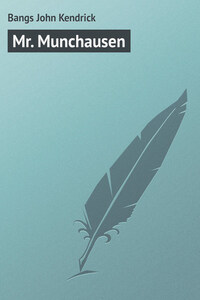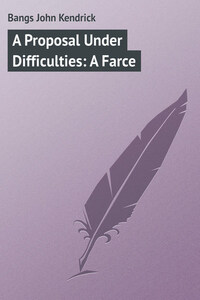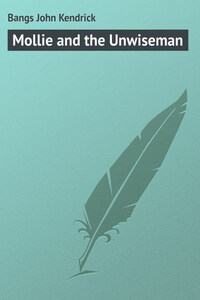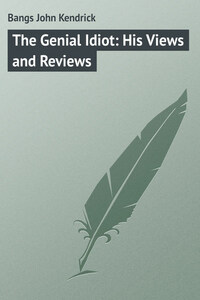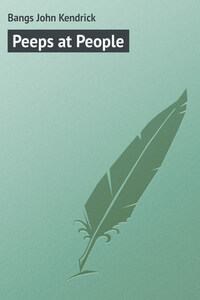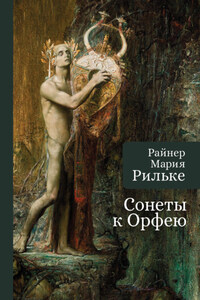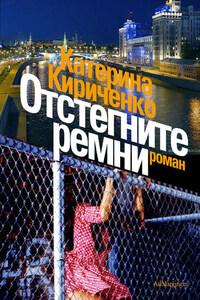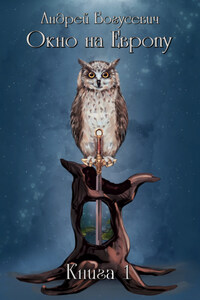The idea was certainly an original one. It was Bedford Parke who suggested it to Tenafly Paterson, and Tenafly was so pleased with it that he in turn unfolded it in detail to his friend Dobbs Ferry, claiming its inception as his very own. Dobbs was so extremely enthusiastic about it that he invited Tenafly to a luncheon at the Waldoria to talk over the possibilities of putting the plan into practical operation, and so extract from it whatever of excellence it might ultimately be found to contain.
“As yet it is only an idea, you know,” said Dobbs; “and if you have ever had any experience with ideas, Tenny, you are probably aware that, unless reduced to a practical basis, an idea is of no more value than a theory.”
“True,” Tenafly replied. “I can demonstrate that in five minutes at the Waldoria. For instance, you see, Dobbsy, I have an idea that I am as hungry as a bear, but as yet it is only a theory, from which I derive no substantial benefit. Place a portion of whitebait, a filet Bearnaise, and a quart of Sauterne before me, and – ”
“I see,” said Dobbsy. “Come along.”
And they went; and the result of that luncheon at the Waldoria was the formation of “The Dreamers: A Club.” The colon was Dobbs Ferry’s suggestion. The objects of the club were literary, and Dobbs, who was an observant young man, had noticed that the use of the colon in these days of unregenerate punctuation was confined almost entirely to the literary contingent and its camp-followers. With small poets particularly was it in vogue, and Dobbs – who, by-the-way, had written some very dainty French poems to the various fiancées with whom his career had been checkered – had a sort of vague idea that if his brokerage business would permit him to take the necessary time for it he might become famous as a small poet himself. The French poems and his passion for the colon, combined with an exquisite chirography which he had assiduously cultivated, all contributed to assure him that it was only lack of time that kept him in the ranks of the mute, inglorious Herricks.
As formulated by Dobbs and Tenafly, then, Bedford Parke’s suggestion that a Dreamers’ Club be formed was amplified into this: Thirteen choice spirits, consisting of Dobbs, Tenafly, Bedford Parke, Greenwich Place, Hudson Rivers of Hastings, Monty St. Vincent, Fulton Streete, Berkeley Hights, Haarlem Bridge, the three Snobbes of Yonkers – Tom, Dick, and Harry – and Billy Jones of the Weekly Oracle, were to form themselves into an association which should endeavor to extract whatever latent literary talent the thirteen members might have within them. It was a generally accepted fact, Bedford Parke had said, that all literature, not even excepting history, was based upon the imagination. Many of the masterpieces of fiction had their basis in actual dreams, and, when they were not founded on such, might in every case be said to be directly attributable to what might properly be called waking dreams. It was the misfortune of the thirteen gentlemen who were expected to join this association that the business and social engagements of all, with the possible exception of Billy Jones of the Weekly Oracle, were such as to prevent their indulgence in these waking dreams, dreams which should tend to lower the colors of Howells before those of Tenafly Paterson, and cause the memory of Hawthorne to wither away before the scorching rays of that rising sun of genius, Tom Snobbe of Yonkers. Snobbe, by-the-way, must have inherited literary ability from his father, who had once edited a church-fair paper which ran through six editions in one week – one edition a day for each day of the fair – adding an unreceipted printer’s bill for eighty-seven dollars to the proceeds to be divided among the heathen of Central Africa.
“It’s a well-known fact,” said Bedford – “a sad fact, but still a fact – that if Poe had not been a hard drinker he never would have amounted to a row of beans as a writer. His dreams were induced – and I say, what’s the matter with our inducing dreams and then putting ’em down?”
That was the scheme in a nutshell – to induce dreams and put them down. The receipt was a simple one. The club was to meet once a month, and eat and drink “such stuff as dreams are made of”; the meeting was then to adjourn, the members going immediately home and to bed; the dreams of each were to be carefully noted in their every detail, and at the following meeting were to be unfolded such soul-harrowing tales as might with propriety be based thereon. An important part of the programme was a stenographer, whose duty it would be to take down the stories as they were told and put them in type-written form, which Dobbs was sure he had heard an editor say was one of the first steps towards a favorable consideration by professional readers of the manuscripts of the ambitious.
“I am told,” said he, “that many a truly meritorious production has gone unpublished for years because the labor of deciphering the author’s handwriting proved too much for the reader’s endurance – and it is very natural that it should be so. A professional reader is, after all, only human, and when to the responsibilities of his office is added the wearisome task of wading through a Spencerian morass after the will-o’-wisp of an idea, I don’t blame him for getting impatient. Why, I saw the original manuscript of one of Charles Dickens’s novels once, and I don’t see how any one knew it was good enough to publish until it got into print!”
